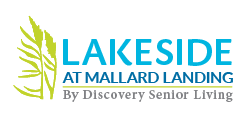Assisted living and memory care communities are responsible for providing tailored care and support to aging adults. More often than not, golden agers need more assistance than they can provide for themselves and may be living with a disability or memory related condition. In this article, you will find out how these communities prepare to help residents in times of medical emergency.
When a medical emergency strikes, it is vital that retirement communities are prepared and equipped to handle the situation. These medical emergencies could be anything from an epileptic attack to a pandemic and it is essential that these centers are prepared to respond quickly and effectively. With the right resources and protocols, they can ensure the safety of residents.
Strong Safety Protocol
Firstly, assisted living and memory care communities ensure that they are following the necessary safety protocols to protect the health and wellbeing of their residents. This includes following guidelines laid down by the Center for Disease Control and Prevention for infection control, providing adequate training for community team members, and having an updated and functional emergency plan. They also have emergency backup plans in place in the event of power outages or other kinds of emergency.
By following these guidelines stated above, retirement communities are not found wanting when a medical emergency does occur. Rather, they are swift to engage the safety protocols, thereby saving lives without having to think of what to do in that moment of need.
Quick Response and Communication
Thirdly, retirement communities provide adequate medical care during a medical emergency. First responders in the community use medical equipment and supplies to respond swiftly to a medical emergency. They are licensed to administer medical care to the resident, including medication and emergency care using the available medical equipment.
They give the affected person first aid treatment and record what happened. They also take the individual to the hospital along with all the necessary documents that the doctors need to treat them quickly. While this is happening, the family members of the affected resident are duly notified of the situation so that they can support their loved one in all the ways that are needed.
Emotional Support
Secondly, these communities provide emotional support during medical emergencies. This part is extremely beneficial to other residents who may have witnessed the emergency unfold and are upset by it. While the emergency resolution team swings into action to save the affected resident, other team members offer emotional help to other residents and help them remain calm and assured.
This assistance may include providing individual counseling sessions, group activities, and support groups to help residents cope with the stress and anxiety of the situation. Such services also reach the family members of the affected individual as the team is swift to inform them of the latest happenings with their loved one. As they do this considerately, they keep family members updated, assured and calm.
Standby Medicare Professionals
Assisted living and memory care communities are also affiliated with medical centers in the neighborhood. These centers may be hospitals that offer world class specialized care to the affected individual which increases their chances of recovery.







